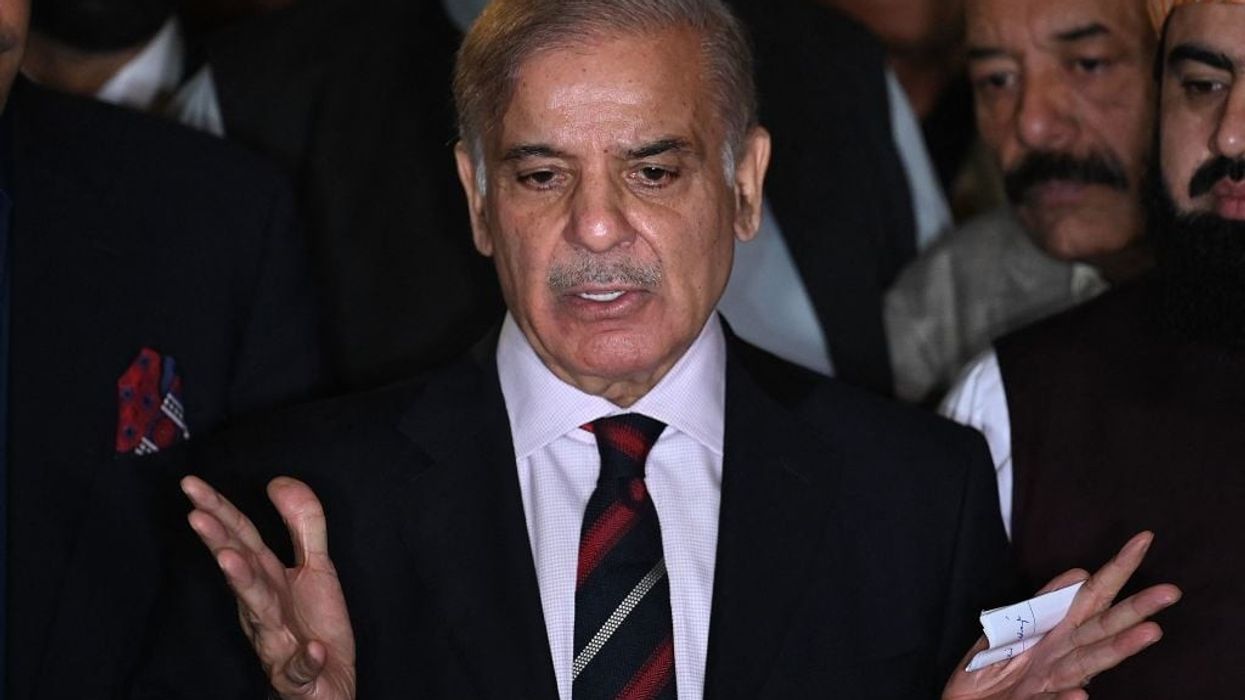Pakistan's new prime minister Shehbaz Sharif began his maiden foreign trip Thursday, arriving in Saudi Arabia in a bid to enhance financial support from a country where he spent years in exile.
The kingdom has long been an intelligence partner for Pakistan as well as a regular source of relief for its struggling economy.
"Today I am embarking on a visit to Saudi Arabia to renew & reaffirm our bonds of brotherhood and friendship," Sharif said on Twitter, adding that the country "has a special place in all our hearts".
He landed in Medina, one of the two holiest cities in Islam along with Mecca, where he was greeted by regional officials and planned to pray at the Prophet's Mosque, the official Saudi Press Agency reported.
Sharif was sworn in earlier this month after parliament ousted his predecessor Imran Khan in a no-confidence vote.
He inherited a crippling national debt, galloping inflation and a feeble rupee, but has vowed to use "Pakistan speed" to hurry along development projects and jump-start an economic recovery.
His delegation was expected to include Bilawal Bhutto Zardari, the 33-year-old scion of Pakistan's most influential political dynasty who was appointed foreign minister on Wednesday.
Talks are expected to focus "on advancing economic, trade and investment ties and creation of greater opportunities for the Pakistani workforce in Saudi Arabia", according to a statement from Pakistan's foreign ministry.
Saudi Arabia hosts more than two million Pakistanis, the statement said.
- Family ties -
Sharif is the younger brother of three-time prime minister Nawaz Sharif, and the family has close ties to Saudi royals.
Nawaz and Shehbaz Sharif, along with other relatives, went into exile in Saudi Arabia in 2000 after a coup ousted Nawaz the previous year.
They did not return to Pakistan until 2007.
"The Sharif family have traditionally had very good relations with the kingdom and this visit serves (Shehbaz Sharif's) interest" in displaying that to his domestic audience, said Saudi political analyst Ali Shihabi.
Yet those connections may have less value as power in Saudi Arabia consolidates under Crown Prince Mohammed bin Salman, the kingdom's de facto ruler, said Arif Rafiq, an expert on Pakistan and president of the Vizier Consulting risk advisory firm.
"I think a basic aim of this visit by Sharif would be to reset relations with (Prince Mohammed) and establish the terms of what is probably going to be a much more transactional partnership," Rafiq said.
Saudi Arabia, the world's biggest crude exporter, has bolstered Pakistan's foreign exchange reserves and allows deferred payment for bilateral oil sales, he said.
"The Pakistanis might ask Riyadh for additional deposits in its central bank because its external account is under severe stress," he added.
A detailed itinerary was not available Thursday, though the statement from Pakistan's foreign ministry said the visit would last until Saturday.




















 Sara Sharif’s father Urfan Sharif and his partner Beinash Batool (Image credit: Surrey Police)
Sara Sharif’s father Urfan Sharif and his partner Beinash Batool (Image credit: Surrey Police)